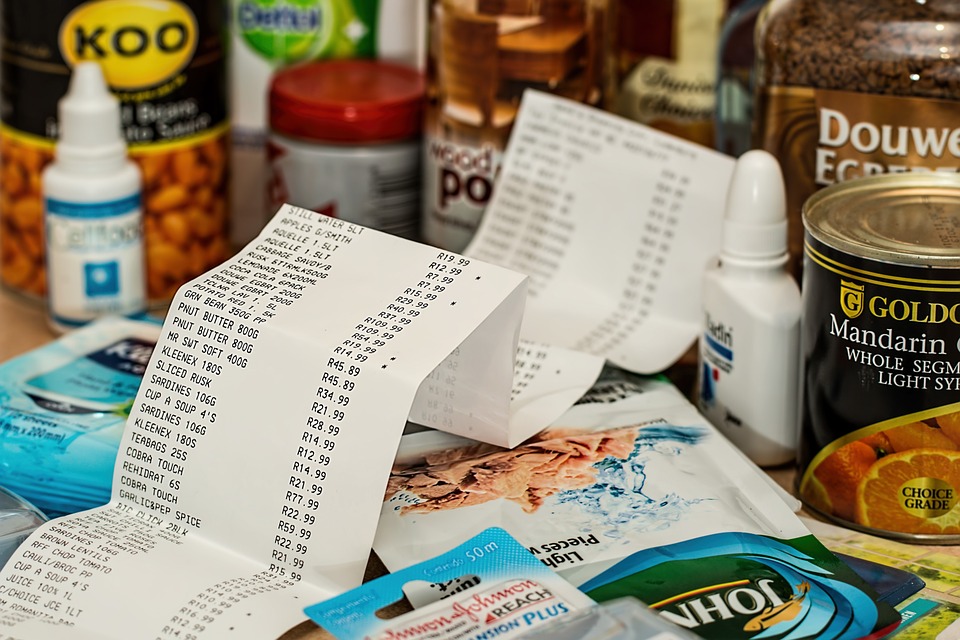Last updated on March 13, 2021
Food, groceries, sanitary products, and other regular household items take up a significant amount of our budgets.
And while there is nothing much you can do about some of the items, sometimes being a smart shopper can salvage a few coins from your salary/income.
Here are some smart shopping tips to make your household expenditure more affordable when shopping in Kenya:
How to save money when shopping in Kenya
1. Negotiate everything to the last coin.
Kenya we are known as the haggling nation. Be the best in the haggling business and ask for a discount on pretty much everything.
I wish I could bargain on airtime.
2. Compare prices
Never be satisfied with the quoted prices. Instead, look around and get the best deals. That 10/- difference in the price of Omo will add up to a 1000/- with every 100 pieces bought.
3. Shop online
Online shops like Jumia are cheaper in electronics, phones, and even fashion in some cases. Exploit them. Of course, make sure you undertake some due diligence to avoid being scammed.
4. Countercheck the bill when checking out
While shopping at your neighborhood stores could save you some money, some cashiers are crafty and will intentionally double/triple count items in an effort to cover their own cash deficits.
To avoid falling victim, do your own totals while paying. Also, confirm that they have packed all your items at the counter.
Don’t get me wrong: Not all supermarket staff are this notorious but we have elements who play these games.
5. Buy from the wholesalers
Many Kenyans think that hypermarkets like Naivas are the cheapest. On the contrary, my survey shows that wholesale shops are the real money savers.
If you want to prove, do your monthly shopping from the most affordable supermarket that’s convenient for you this month while keeping all those receipts.
Shift coming month and buy your usual consumables from your most convenient wholesaler. Remember to ask for receipts.
Then sit down with your calculator and compare the total bills. In most cases, the total bill from your mega wholesaler will be significantly lower.
6. Buy in Bulk
Nothing irritates me like reaching for toilet papers or bathing soap only to discover that someone already used the last piece and didn’t bother mentioning it.
It’s not only inconveniencing but it also leaves a yawning gap in your wallet. Instead, plan yourself well and track usage of things around the house so as to stock enough at the beginning of the month.
Ultimately, cutting down your supermarket encounters will save you cash as well as the frustrations.
7. Don’t overstock
Even if bulk purchasing saves, sometimes it can lead to wastages which negate your money saving efforts.
You see, humans- I included- tend to care less when measuring stuff so long as it still seems to be abundant.
To illustrate, I have noted that a 1 kg packet of Omo in my house lasts a lesser duration than 2, 500g packets of the same product.
Reason? The inevitable misuse.
8. Pay cash
Psychologically, you’re likely to feel more pinch when paying cash than when paying with plastic money such as credit cards.
Again, swiping your credit card at the stores/fuel station will automatically trigger an additional interest expense plus other credit card fees.
9. Skip the greengrocer
For groceries, buying from the farmers at the local market guarantees you fresh produce as well as rock bottom prices.
10. Buy the fruits in season
Fruits are crucial for your good health and your doc will advise you to indulge in them as frequently as possible.
But instead of paying shs.50 for an orange in January (when they’re out of season), buy the more affordable and succulent Mangoes from Ukambani (In season in January).
11. Avoid impulse buying
This one is self-explanatory. Have a shopping list when visiting the store and stick to it.
12. Shop for fashion during odd months
Fashion is priced at an all-time low in the odd months like in July.
You see, Kenyans tend to get into a cloth-buying frenzy during the festive seasons.
On the other hand, owners of boutiques still need to pay rent and meet other expense so they price their merchandise at throwaway prices during these months.
13. Buy second hand
For electronics such as computers, you can buy refurbished provided they’re in good condition. For instance, a new Core i3 laptop will set you back about shs.40000 while its refurbished equivalent costs about half (shs.20000) in some shops.
14. Take advantage of promotions/offers
Most of the big stores including the house of leather run promotions under strange names.
Rush to the store next time you see big banners shouting CLOSING DOWN SALE or such. The prices are usually dramatically reduced so it’s your chance to finally own that jewel you’ve always craved without hurting your wallet.
15. Carry your own shopping bag
Since the government banned polythene bags, our supermarkets have become mean and no longer give the previously ‘free’ carry bags.
The third bob you’re spending on the carrier basket is 360/- at the end of the year assuming you’re a monthly shopper.
You can put this cash to better use if you develop a habit of carrying your own basket.
MORE ARTICLES SELECTED JUST FOR YOU:






Be First to Comment